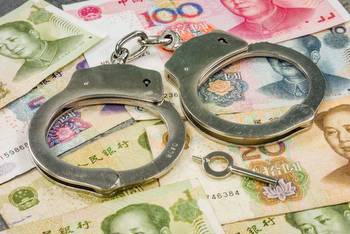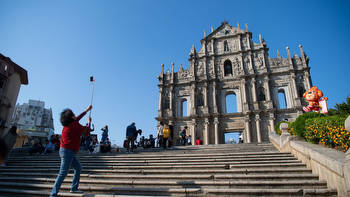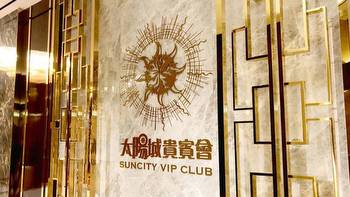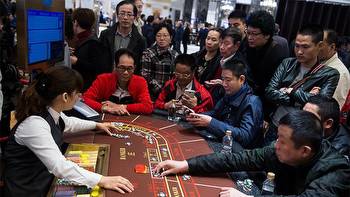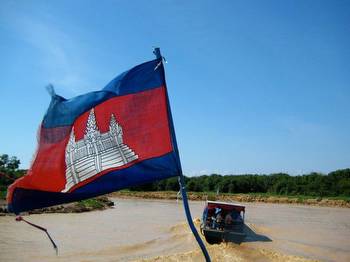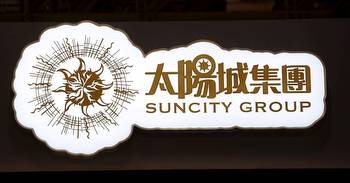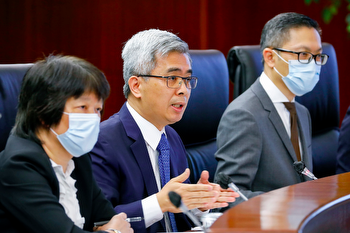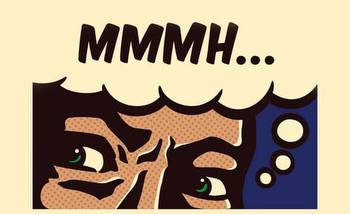China’s Communist Cadres Warned Not to Gamble During World Cup Amid Capital Outflow Concerns

It’s not a secret that many Chinese Communist Party (CCP) officials are keen on gambling during the World Cup, and during this year’s FIFA tournament, China’s top disciplinary watchdog warned that gambling is ruining young cadres.
A Nov. 24 article of the State Supervision Commission of the Central Discipline Inspection (CCDI) revealed several cases of gambling involving young party officials born in the 80s and 90s and warned them against such habits.
But China analysts are asking if the CCDI’s warnings are out of concern for the young cadres or for other interests. Chinese current affairs observer Lu Tianming believes that the CCP is worried about losing money.
“It [the CCP] is not really concerned about what happens to these officials themselves, but it is afraid that a large amount of money will flow out of the country and accelerate the collapse of its regime,” Lu told The Epoch Times on Nov. 26.
“The Chinese regime is not willing to see the hundreds of billions or even trillions of dollars flowing out of China through casinos every year. It is actually money laundering in the form of gambling—the party cadres collude with casinos and transfer funds and money this way,” he said.
“This is one of the most important reasons why the CCP is taking this matter more seriously and has made a so-called public appeal not to gamble.”
Party Members’ Prone to Soccer Gambling
The young cadres named in the warning were allegedly not just participants in online gambling but organizers of offline gambling games. Some of them even reap benefits by recruiting gamblers.
According to the CCDI, Li Gaofeng, an official in Hunan Province, posted information on Chinese social media WeChat and QQ for betting sites to recruit gamblers and used it to pay off soccer gambling debts.
Zhang Yu, general manager of an investment company in Yuxi, Yunnan Province, was accused of organizing football gambling on the European Cup and the World Cup and settling bets via WeChat.
Another case was Chen Ke, a fourth-ranking police chief in the Nanning Public Security Bureau of Guangxi Province, who lost all his savings and house on soccer betting and incurred high gambling debts. To settle debts, he approached traffic violators and received bribes in exchange for not revoking their driver’s licenses.
Official Gambling Billed Huge Amount
Back in October 2014, the Central Committee unveiled a list of so-called “official gambling” accounts, revealing for the first time the involvement of CCP party officials in gambling, according to state mouthpiece CCTV.
State media said that the authorities investigated 6,122 cases involving 7,162 party officials and cadres nationwide for gambling.
Gambling officials were found in more than 30 provinces and municipalities, with eastern China’s Zhejiang Province having the largest number of cases, followed by the coastal province Guangdong in the south.
Many of the gambling cases noted by the CCDI involved high-profile official figures and large amounts of money, adding that the gamblers faced serious consequences. A disciplinary cadre in Guizhou Province said at the time that some poker games that officials view as “small stakes” involved tens of thousands of dollars.
Over the past two decades, the number and proportion of cases of gambling by officials investigated and punished have increased, as had cross-border gambling and the misappropriation of public funds, state media reported.
Gambling Capital Flows Overseas
An article in state-run media China Court on July 11, 2014, said that during the World Cup that year, the number of gamblers increased exponentially, and illegal gambling websites outside of China also multiplied.
The article stated that many offshore gambling companies were recruiting agents on the mainland, resulting in gambling agent sites popping up across the country and causing large amounts of money to exit China.
Wang Xuehong, executive director of the Institute of Public Welfare Lottery of Peking University, said that after research and surveys, the ratio of illegal gambling money to lottery money in China is about 10 to 1 every year, according to China Court.
“In 2008, China’s lottery sales were about 105.9 billion yuan (about $15.2 billion at the time). Based on this ratio, illegal gambling amounts that year could reach 1 trillion yuan (about $143.9 billion at the time) in China, among which, parts wagered in underground gambling is staggering,” Wang said.
















